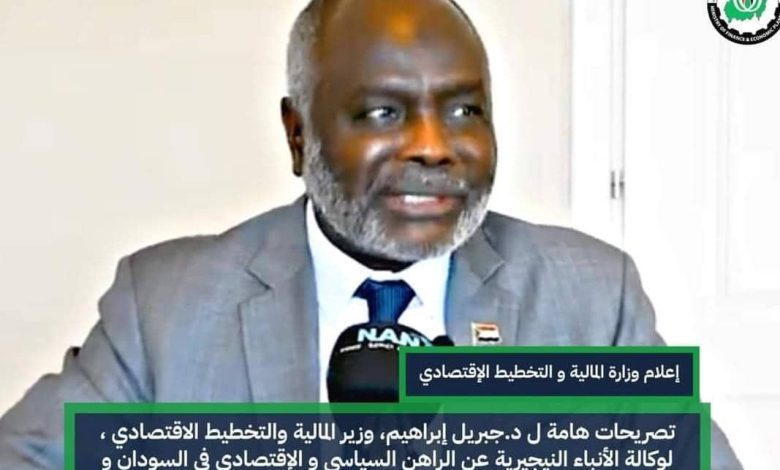Finance Minister: The Continuation of Militia Rebellion is an obstacle to Economic Recovery

Sudan Events – Agencies
Minister of Finance and Economic Planning, Dr. Jibril Ibrahim, advisor to alerts, said that the conflict continues to lead to the management of the Sudanese economic crisis, and its emergence, for example, trade from economic companies and was greatly disrupted due to legal financing.
Goods cannot be easily transported from one part to another throughout the country, which increased transportation costs and the manager of Sudanese products less in the market, which helps create difficulties in transporting goods from the western part of Sudan to the Red Sea Ports.
These costs make it difficult for Sudanese products to be internationally competitive , which increases the economic disability.
Added that the conflict led to a full volume of the value of the Sudanese currency, which helped the country’s economy and the basic requirements of the band.
However, the minister said despite the challenges, Sudan’s athlete to strengthen its relations with Nigeria and other African countries.
There are current challenges due to the war that make economic contexts uneducational, but the issue of cooperation other need to help Sudan crush the war.
He affirmed that the failure to choose the political option and the continued rebellion of militia support are the main factors for reaching economic revenues “without peace, therefore, it will be difficult for Sudan to rebuild its economy and qualify itself as a trading partner in the region.”
Regarding the 2024 African Committee meeting of the Governors of the International Monetary Fund (IMF) and the World Bank (WBG) held in Abuja from August 1 to 3.
He explained that it is a non-monetary number that takes place before the annual meeting of the International Monetary Fund and the World Bank.
This year’s Brussels African meeting focused on how to reach trade agreements between African countries, which have been stalled due to the conflict in Sudan. The meeting is overseen by a platform for African ministers to address issues related to economic development and the diverse African team to Bretton Woods (IMF and World Bank).



